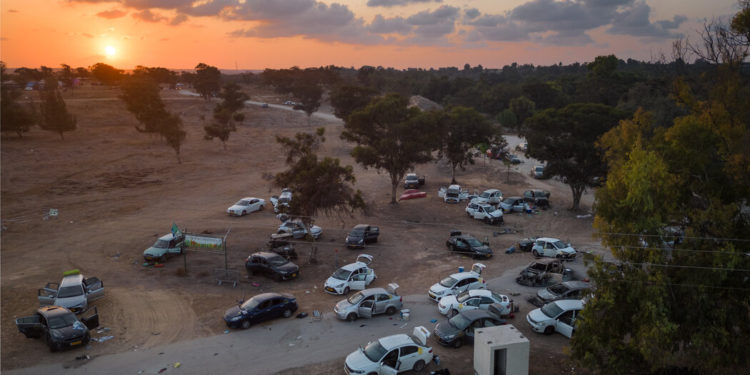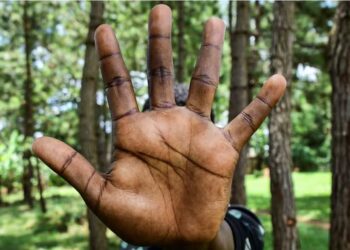By THE NEW YORK TIMES
An Israeli organization that supports survivors of sexual abuse released a report on Wednesday concluding that acts of sexual violence against Israelis during and after the Hamas-led attack on Oct. 7 were “systematic and widespread.”
“The report finds that the Hamas attack included brutal acts of violent rape, often involving threats with weapons, specifically directed towards injured women,” said the group, The Association of Rape Crisis Centers in Israel, an umbrella organization of nine such organizations in Israel. The report added that many incidents involved gang rape.
“Often, the rape was perpetrated in front of an audience — partners, family or friends — in a manner intended to increase the pain and humiliation of all present,” the report said.
The attackers also “cut and mutilated sexual organs and other body parts with knives,” the report said.
The report asserted that its information and analysis “clearly demonstrates that sexual abuse was not an isolated incident or sporadic cases but rather a clear operational strategy.”
Based on analysis of the information collected by the organization, the report concluded that sex crimes were committed against people at a rave site, in kibbutzim and at military bases and against hostages held in Gaza.
The report was based on testimonies, interviews with emergency medical workers and articles, including a monthslong investigation published by The New York Times in late December, which documented a pattern of gender-based violence in the Hamas-led Oct. 7 attack.
The subject of sexual violence has been among the more contentious aspects of the Oct. 7 attack. Multiple news organizations have reported allegations of sexual violence during the attack, and The Times, on Dec. 28, included accounts from several eyewitnesses who said they saw women being sexually assaulted and killed.
The Times viewed photographs and videos of women’s bodies that bore signs suggestive of sexual assault and mutilation. The Times also spoke with emergency responders who said they found bodies of naked or half-naked women and girls who appeared to have been sexually assaulted.
Some critics on social media have challenged these findings, saying there was not enough forensic evidence to substantiate the claims. Experts have said that it is not unusual for such evidence to be minimal in cases of wartime sexual violence.
Women’s advocacy groups in Israel have denounced the pushback, saying that the numerous and detailed allegations that Israeli women were brutally attacked that day have been held to different standards than allegations of women in other places who claimed to have been victimized.
Demonstrators in Israel, angry at what they consider a slow response by the U.N. and other international organizations, have chanted at protests, “Me too, unless you’re a Jew!”
Hamas, which the United States and the European Union consider a terrorist group, has repeatedly denied that its fighters perpetrated sexual violence on Oct. 7. For instance, three days after the Times investigation was published, Hamas said in a statement that the group’s leaders “categorically deny such allegations” and called it a part of Israel’s attempt to justify the killing of Palestinian civilians.
Hamas has maintained that its fighters’ “religion, values and culture” forbid such acts, and that, as Muslims, they are “honor-bound to respect and protect all women.” The group has said it welcomes any international inquiries into allegations of sexual violence.
In late January, a U.N. team visited Israel to examine these reports, led by Pramila Patten, the U.N. secretary-general’s special representative on sexual violence in conflict. Ms. Patten’s office said she will share some preliminary findings and that additional information will be included in her office’s annual report on sexual violence in conflict.
Orit Sulitzeanu, the executive director of the Association of Rape Crisis Centers in Israel, said in a news release that the report was submitted to decision makers at the U.N. “Silence is no longer an option,” she said. “We expect international organizations to take a clear stance; we cannot stand on the sidelines.”







Discussion about this post